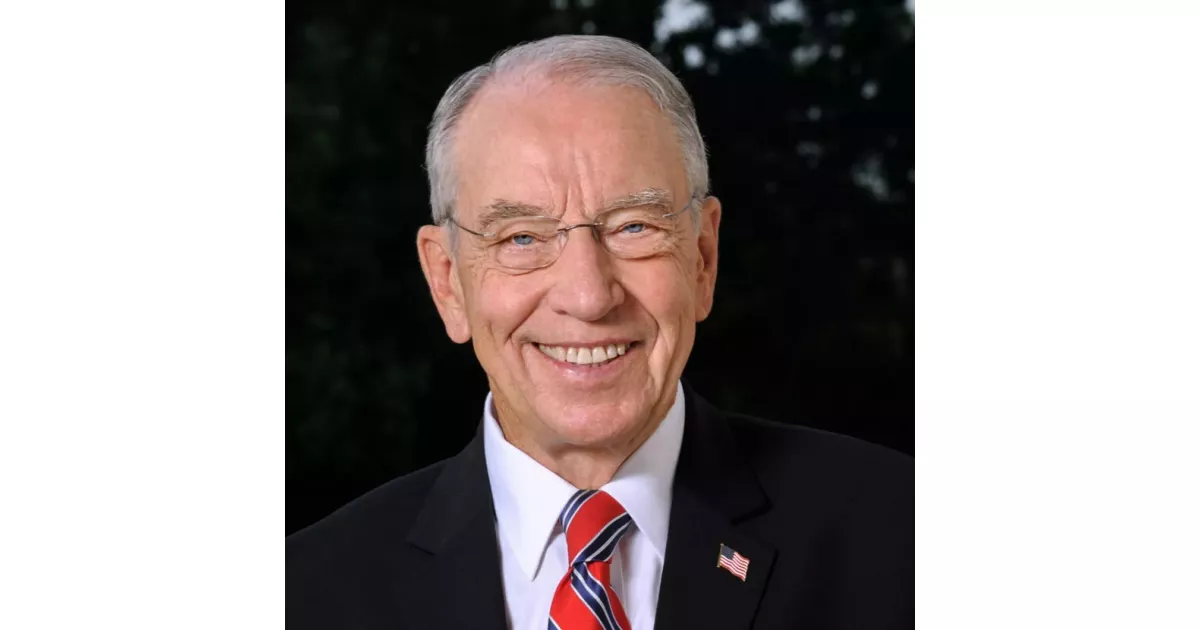Chuck Grassley is a prominent American politician and the senior United States Senator from Iowa, serving since 1981. A Republican, he currently holds the position of president pro tempore of the Senate, a role he also filled previously. As a long-serving senator, Grassley is a significant figure in American politics.
September 17, 1933: Charles Grassley Born
On September 17, 1933, Charles Ernest Grassley was born in New Hartford, Iowa. He is the son of Ruth (née Corwin) and Louis Arthur Grassley.
1951: Grassley graduated from High School
In 1951, Chuck Grassley graduated from New Hartford Community High School.
August 22, 1954: Marriage to Barbara Ann Speicher
On August 22, 1954, Chuck Grassley married Barbara Ann Speicher. They went on to have five children: Lee, Wendy, Robin, Michele, and Jay.
1955: Grassley Earned a Bachelor of Arts Degree
In 1955, Chuck Grassley earned a Bachelor of Arts degree from Iowa State Teachers College (now the University of Northern Iowa).
1956: Grassley Earned a Master of Arts Degree
In 1956, Chuck Grassley earned a Master of Arts in political science from Iowa State Teachers College (now the University of Northern Iowa).
1959: Grassley Represented Parts of Butler County in Iowa House
In 1959, Chuck Grassley began representing parts of Butler County in the Iowa House of Representatives.
1959: Grassley Served in the Iowa House of Representatives
In 1959, Chuck Grassley began serving in the Iowa House of Representatives.
1967: Grassley taught at Charles City College
From 1967, Chuck Grassley taught at Charles City College.
1968: Grassley finished teaching at Charles City College
In 1968, Chuck Grassley's time teaching at Charles City College came to an end.
1975: Grassley Served in the US House of Representatives
In 1975, Chuck Grassley began serving in the United States House of Representatives.
1976: Introduced measures to increase taxation on Americans abroad
In 1976, Chuck Grassley began repeatedly introducing measures aimed at increasing the level of taxation on American citizens living abroad, including retroactive tax hikes.
1980: Grassley Elected to the Senate
In 1980, Chuck Grassley was first elected to the Senate, defeating Democratic incumbent John Culver.
November 1981: Grassley supported Director of the Office of Management and Budget David Stockman
In November 1981, Chuck Grassley was one of 32 senators to sign a letter to President Reagan supporting Director of the Office of Management and Budget David Stockman.
December 1981: Voted for a proposed constitutional amendment to allow abortion bans
In December 1981, Grassley voted for a proposed constitutional amendment by Orrin Hatch that would allow both Congress and the states to ban or regulate abortion.
1981: Grassley became US Senator from Iowa
In 1981, Chuck Grassley became the senior United States Senator from Iowa, a position he has held since.
1981: Grassley Ended Term in US House of Representatives
In 1981, Chuck Grassley ended his term in the United States House of Representatives.
1981: Began holding public meetings in all of Iowa's counties
Since first taking office in 1981, Grassley has held public meetings in all of Iowa's 99 counties each year.
August 1982: Grassley sought amendment to bill barring Reagan administration from operating Radio Marti on commercial AM frequencies.
In August 1982, Chuck Grassley joined fellow Iowa senator Roger Jepsen and Edward Zorinsky in seeking an amendment to the bill barring the Reagan administration from operating Radio Marti on that frequency or other commercial AM frequencies.
October 1983: Grassley voted against establishing MLK Day
In October 1983, Chuck Grassley voted against establishing a legal holiday to commemorate Martin Luther King Jr.'s birthday.
November 1, 1984: Grassley signed contempt of Congress citation against Attorney General William French Smith
On November 1, 1984, Chuck Grassley signed a one-page citation of contempt of Congress against Attorney General William French Smith due to Smith's not turning over files on an investigation into Navy shipbuilding.
1986: Grassley Reelected in 1986
In 1986, Chuck Grassley was reelected to the Senate, defeating the Democratic nominee, attorney John P. Roehrick.
May 1987: Senate Committee defeated Grassley's attempt to hasten payments of farm subsidies
In May 1987, the Senate Appropriations Committee defeated an attempt by Chuck Grassley to hasten payments of corn and other feed grain subsidies ahead of the scheduled payment.
October 1987: Grassley Criticized Reagan's Handling of Bork Nomination
In October 1987, Chuck Grassley criticized President Reagan's handling of Robert Bork's Supreme Court nomination, accusing Reagan of being "asleep at the switch." He also likened the groups lobbying against Bork's nomination to the McCarthyism of the 1950s. Later that month, as party leaders of the Senate Judiciary Committee met on the Supreme Court nomination of Douglas H. Ginsburg, Grassley released the text of a letter he intended to send to the American Bar Association suggesting the association was dragging its feet in reviewing Ginsburg's record.
January 1989: Grassley on Senate Pay Increase
In January 1989, as the Senate voted to schedule a vote within a month on a pay increase, Chuck Grassley questioned how senators could decline federal program increases if the first action was a pay raise.
1989: Author of the Whistleblower Protection Act
Chuck Grassley authored the Whistleblower Protection Act of 1989, which aimed to increase protection and provide support for "whistleblowers".
January 1991: Grassley Voted Against Joining Coalition to Force Iraq Out of Kuwait
In January 1991, Chuck Grassley was one of only two Republican senators to vote against joining the international coalition to force Iraq out of Kuwait.
August 1991: Grassley Joined Committee on POW-MIA Affairs
In August 1991, Chuck Grassley became one of six Republicans on the Select Senate Committee on POW-MIA Affairs that would investigate the number of Americans still missing in the aftermath of the Vietnam War.
1992: Grassley Reelected in 1992
In 1992, Chuck Grassley was reelected to the Senate, defeating Democratic state senator Jean Hall Lloyd-Jones.
1992: Authored EPACT 1992
In 1992, Grassley authored EPACT 1992, which created the federal wind energy tax credit.
July 1993: Last missed roll-call vote
In July 1993, Grassley last missed a roll-call vote, when he was touring Iowa with President Bill Clinton to survey flood damage.
1994: Continued public meetings after losing honorarium payments
In 1994, Grassley continued holding public meetings in all of Iowa's 99 counties each year, even after losing honorarium payments for them.
July 1998: Clinton listed Grassley as member who helped sign IRS Restructuring Act
In July 1998, President Bill Clinton listed Chuck Grassley among the members of Congress who had made it possible "for me to sign into law today the Internal Revenue Service Restructuring and Reform Act".
1998: Grassley Reelected in 1998
In 1998, Chuck Grassley was reelected to the Senate, defeating former state representative David Osterberg.
February 12, 1999: Grassley voted to convict and remove Bill Clinton from office
On February 12, 1999, Chuck Grassley was one of 50 senators to vote to convict and remove Bill Clinton from office.
2000: FBI internal report examined agent misconduct
In 2000, the FBI created an internal report that examined 107 instances of either serious or criminal misconduct by its agents over a 16-year period.
May 2001: Grassley Met with Baucus over Tax Cut Allocations
In May 2001, Chuck Grassley met with Democratic senator Max Baucus over the allocation of finances in tax cuts and both reported they were making progress in reaching a bipartisan deal.
August 2002: Grassley Requested Explanation on United Way Finances
In August 2002, Chuck Grassley sent a letter to president and chief executive of the United Way of America Brian Gallagher requesting a detailed explanation on the overseeing of both finances and management of the organization's affiliates.
2003: Omicron Delta Kappa Honoris Causa Membership
In 2003, Chuck Grassley's alma mater, the University of Northern Iowa, selected him for honoris causa membership in Omicron Delta Kappa, the National Leadership Honor Society.
2003: Supported covering end-of-life counseling
In 2003, Grassley voted for the Medicare Prescription Drug, Improvement, and Modernization Act, which stated: "The covered services are: evaluating the beneficiary's need for pain and symptom management, including the individual's need for hospice care; counseling the beneficiary with respect to end-of-life issues and care options, and advising the beneficiary regarding advanced care planning."
February 2004: Grassley Released FBI Internal Report
In February 2004, Chuck Grassley released an internal report composed by the FBI in 2000 that examined 107 instances of either serious or criminal misconduct by its agents over a 16-year period.
2004: Grassley co-sponsored legislation giving King a posthumous award
In 2004, Chuck Grassley co-sponsored legislation giving King a posthumous award, which became law on October 25 that year.
2004: Grassley Reelected in 2004
In 2004, Chuck Grassley was reelected to the Senate, defeating former state senator Arthur A. Small.
2004: Oversight of Legislative Reforms and Accountability of the FDA
In 2009, the National Center for Health Research gave Chuck Grassley the Health Policy Hero award for his 2004 oversight of legislative reforms and accountability of the United States Food and Drug Administration (FDA).
June 28, 2005: Voted for the EPACT 2005 bill
On June 28, 2005, Grassley, as chairman of the Senate Finance Committee, voted for the EPACT 2005 bill, for which he authored the tax title.
June 28, 2006: Grassley Proposed Legislation to Curb Sex Trafficking
On June 28, 2006, Chuck Grassley proposed legislation intended to curb sex trafficking and sexual slavery by strictly enforcing tax laws.
2006: Amendment increasing taxes on Americans abroad goes into effect
In 2006, an amendment Grassley attached to a piece of legislation went into effect. The amendment increased taxes on Americans abroad by targeting housing and living incentives paid by foreign employers and holding them accountable for federal taxes, even if they did not reside in the United States.
May 17, 2007: Lifetime Achievement Award from National Whistleblower Center
On May 17, 2007, Chuck Grassley received a lifetime achievement award from the National Whistleblower Center for his work on whistleblower protection.
June 19, 2007: Helped expand tax incentives for alternative energy sources
On June 19, 2007, Grassley helped expand tax incentives that produces energy from alternative sources including ethanol, wind, biomass, and biodiesel.
June 21, 2007: Voted for the Energy Independence and Security Act of 2007
On June 21, 2007, Grassley voted for the Energy Independence and Security Act of 2007, which expanded other energy tax incentives through 2013.
July 2007: Release of Report on Farm Subsidies
In July 2007, a report was released that Chuck Grassley commissioned, claiming that more than US$1 billion in farm subsidies were sent to deceased individuals.
November 5, 2007: Investigation Announced into Tax-Exempt Status of Ministries
On November 5, 2007, Chuck Grassley announced an investigation into the tax-exempt status of six ministries led by Benny Hinn, Paula White, Eddie L. Long, Joyce Meyer, Creflo Dollar, and Kenneth Copeland, conducted by the United States Senate Committee on Finance.
December 6, 2007: Deadline for Ministries to Comply with Finance Committee Request
By the December 6, 2007, deadline, only three of the six ministries under investigation by the United States Senate Committee on Finance, led by Chuck Grassley, had shown compliance with the committee's request for financial information.
March 11, 2008: Follow-up Letters Sent to Ministries
On March 11, 2008, Chuck Grassley and Finance chairman Max Baucus sent follow-up letters to Kenneth Copeland, Creflo Dollar and Eddie Long, explaining that the Senate reserved the right to investigate the finances of their organizations under federal tax laws.
2008: Request for Disclosure of Drug Industry Funds to APA
In 2008, Chuck Grassley asked the American Psychiatric Association (APA) to disclose how much of its annual budget came from drug industry funds. The APA reported that industry contributed 28% of its budget ($14 million at that time) mainly through paid advertising in APA journals and funds for continuing medical education.
2008: Investigation into Payments to Physicians by Pharmaceutical Companies
In 2008, Chuck Grassley led a Congressional investigation that found that well-known university psychiatrists, who had promoted psychoactive drugs, had violated federal and university regulations by secretly receiving large sums of money from pharmaceutical companies that made the drugs. The investigation revealed unreported income by psychiatrists from Harvard and Stanford.
March 2009: Suggested AIG employees should resign or commit suicide
In March 2009, amid a scandal involving AIG executives receiving large bonuses from the taxpayer-funded bailout of AIG, Grassley suggested that those AIG employees receiving large bonuses should resign immediately or commit suicide. He later dismissed the comments as rhetoric after facing criticism.
May 2009: Cosponsored resolution to amend US Constitution to prohibit flag burning
In May 2009, Grassley cosponsored a resolution aimed at amending the US Constitution to prohibit flag burning.
August 12, 2009: Commented on end-of-life counseling provisions
On August 12, 2009, at a meeting in Iowa, Grassley responded to an audience question about end-of-life counseling provisions in the House health care bill, H.R. 3200, by saying that people were right to fear that the government would "pull the plug on grandma".
December 2009: Voted against the Patient Protection and Affordable Care Act
In December 2009, Grassley voted against the Patient Protection and Affordable Care Act, also known as Obamacare or the Affordable Care Act.
2009: Health Policy Hero Award
In 2009, the National Center for Health Research gave Chuck Grassley the Health Policy Hero award for his 2004 oversight of legislative reforms and accountability of the United States Food and Drug Administration (FDA).
January 2010: Signed letter warning White House about Transportation Security Administration nominee
In January 2010, Grassley was one of seven Senate Republicans to sign a letter warning the White House about their reservations with Director of the Transportation Security Administration nominee Erroll Southers due to conflicting accounts Southers gave the Senate about his previous tapping of databases for information about his ex-wife's boyfriend in the late 1980s.
December 2010: Voted against ratification of New START treaty
In December 2010, Grassley was one of 26 senators who voted against the ratification of New START, a nuclear arms reduction treaty between the United States and Russian Federation.
2010: Largest Contributors to Grassley's Political Career
According to OpenSecrets, in 2010, the industries that have been the largest contributors to Chuck Grassley during his political career are health professionals ($1 million in contributions), insurance industry ($997,674), lawyers/law firms ($625,543) and pharmaceuticals/health products ($538,680). His largest corporate donors have been Blue Cross Blue Shield, Amgen and Wells Fargo.
2010: Grassley Sought a Sixth Term
In 2010, Chuck Grassley sought a sixth term in the Senate and was challenged by Democrat Roxanne Conlin and Libertarian John Heiderscheit.
2010: Received "A" rating from NRA Political Victory Fund
In 2010, Grassley had an "A" rating from the NRA Political Victory Fund (NRA-PVF).
2010: Named Hardest-Working Member of Congress
In 2010, The Hill named Chuck Grassley and Max Baucus the hardest-working members of Congress.
July 2012: Missed only 35 votes in Senate career
As of July 2012, Grassley had missed only 35 votes in his Senate career.
April 2013: Opposed gun control amendment, proposed alternative legislation
In April 2013, Grassley opposed a gun control amendment authored by senators Joe Manchin and Pat Toomey, and instead proposed alternative legislation to increase prosecutions of gun violence and increase reporting of mental health data in background checks.
2013: Energy tax incentives expanded through 2013
Through Grassley's work, the Energy Independence and Security Act of 2007 which expanded other energy tax incentives lasted through 2013.
April 2014: Plans to Create Senate Whistleblower Protection Caucus
In April 2014, Chuck Grassley announced plans to create a caucus in the Senate dedicated to strengthening whistleblower protections.
2014: Grassley called 'Taxpayer Super Hero'
In 2014, Chuck Grassley was called a "Taxpayer Super Hero" by the council for Citizens Against Government Waste. He received a 100 percent rating from the group that year and has a lifetime rating of 78 percent.
March 9, 2015: Signed letter to Iran rebuking the Joint Comprehensive Plan of Action
On March 9, 2015, Grassley was one of 47 senators to sign a letter to Iran led by Tom Cotton to rebuke the Joint Comprehensive Plan of Action.
June 2015: Introduced legislation to protect taxpayers from IRS abuses
In June 2015, Grassley introduced legislation intended to help protect taxpayers from alleged abuses by the Internal Revenue Service.
September 2015: Received "Friend of Iowa Wind Energy" award
In September 2015, Grassley received the Dr. Harold D. Prior "Friend of Iowa Wind Energy" award from the Iowa Wind Energy Association for his commitment to supporting wind energy development in Iowa.
November 2015: Cast 12,000th vote
As of November 2015, Grassley had cast 12,000 votes.
2015: Opposition to Bipartisan Senate Bill on Cannabis
In 2015, Chuck Grassley voiced his opposition to a bipartisan senate bill, the Compassionate Access, Research Expansion, and Respect States Act. This bill aimed to move cannabis from Schedule I to Schedule II, allowing states with medical cannabis laws to legally prescribe it and enable further research into its medical efficacy.
2015: Explanation of Grassley's 1983 Vote Against MLK Day
In 2015, an aide to Chuck Grassley said that he voted against the holiday due to an "economic decision both in the cost to the broader economy in lost productivity, and the cost to the taxpayers with the federal government closed".
2015: Statement on Same-Sex Marriage Ruling
In 2015, following the Supreme Court's ruling in Obergefell v. Hodges that same-sex marriage bans were unconstitutional, Chuck Grassley released a statement expressing his belief that marriage should be between one man and one woman, criticizing the court for not leaving the issue to the states.
January 2016: Set record for most times without missed roll-call vote
In January 2016, Grassley set a record for the most times without a missed roll-call vote, having not missed one since July 1993.
2016: Grassley Reelected to Seventh Term
In 2016, Chuck Grassley sought and won his seventh term in the Senate with over 60% of the vote.
2016: Received "A+" rating and endorsement from NRA Political Victory Fund
In 2016, Grassley received an "A+" rating and endorsement from the NRA Political Victory Fund. According to a source from Splinter News, Grassley received $9,900 from the NRA during his 2016 election.
2016: Said the 'American people shouldn't be denied a voice' in Supreme Court nomination
In 2016, Senate Republicans refused to consider Obama's nomination of Merrick Garland to the Supreme Court. At the time, Grassley said that the "American people shouldn't be denied a voice" in the nomination, which was "too important to get bogged down in politics".
2016: Proposed legislation on background checks and illegal gun sales
In 2016, one month after the Orlando nightclub shooting, Grassley proposed legislation to expand state-to-state access to background check data and to make it illegal for government officials to sell criminals guns as part of sting operations. Both proposals were rejected by the Senate.
2016: Russia 2016 investigation
In January 2018, Grassley condemned Feinstein, saying that her decision was "confounding" and that it deterred future witnesses in the Russia 2016 investigation.
2016: Russian Interference in the 2016 Election
In January 2018, Grassley recommended charges against Christopher Steele, who sought to expose Russian interference in the 2016 election.
February 2017: Statement on Russian Interference and U.S. Involvement in Foreign Elections
In February 2017, Chuck Grassley stated that while Russian interference in U.S. elections was "bothersome", the United States also had a history of interfering in foreign elections, citing the 1948 Italian election as an example.
April 2017: Co-sponsorship of the Israel Anti-Boycott Act
In April 2017, Chuck Grassley co-sponsored the Israel Anti-Boycott Act (s. 720), which would make it a federal crime for Americans to encourage or participate in boycotts against Israel and Israeli settlements in the West Bank if protesting actions by the Israeli government.
May 2017: Advising to "Suck it up and move on" after Comey firing
In May 2017, after Trump fired FBI director James Comey, Chuck Grassley advised people suspicious of the Trump administration to "Suck it up and move on."
July 2017: Said Senate Republicans should be ashamed of not repealing the ACA
In July 2017, Grassley said that Senate Republicans should be ashamed of not having repealed the ACA, and that this could result in a loss of their majority in the 2018 elections.
August 2017: Judiciary Committee Interview with Glenn Simpson
In August 2017, the Judiciary Committee, including Chuck Grassley, conducted a ten-hour interview with Glenn Simpson, co-founder of Fusion GPS, regarding the Steele Dossier on alleged connections between Trump and Russia. The full transcript of this interview became a point of contention in January 2018.
October 31, 2017: Grassley Ignores Questions on Indictments
On October 31, 2017, while a group of Republicans were facing questions from reporters concerning recent indictments, Chuck Grassley ignored the questions and left the room.
2017: Expressed concerns about the Paris Agreement
In 2017, regarding the Paris Agreement, Grassley said, "unequal terms put the U.S. economy at a significant disadvantage while letting large economies like China’s and India’s off the hook". He also said he didn't like that the Senate had not voted on the agreement.
2017: Received commodity subsidies over 21 years
In 2017, the Environmental Working Group stated that Grassley received $367,763 in grain commodity subsidies over 21 years.
2017: Sponsored legislation expanding firearm access for mentally disabled individuals
In early 2017, Grassley sponsored legislation that expanded access to firearms by mentally disabled individuals, claiming that the previous ban against mentally ill individuals purchasing guns "mistreats disabled Americans".
January 2018: Request to Preserve the North American Free Trade Agreement
In January 2018, Chuck Grassley was one of 36 Republican senators to sign a letter to President Trump requesting he preserve the North American Free Trade Agreement by modernizing it for the 21st-century economy.
January 2018: Criminal Referral Recommendation for Christopher Steele
In January 2018, Chuck Grassley, along with Lindsey Graham, recommended charges against Christopher Steele, who sought to expose Russian interference in the 2016 election. They believed Steele had lied to federal authorities.
January 2018: Condemnation of Feinstein for Releasing Glenn Simpson Transcript
In January 2018, after Chuck Grassley and Judiciary Committee Republicans refused to release the full transcript of an August 2017 interview with Glenn Simpson, Senator Dianne Feinstein unilaterally released it. Grassley condemned Feinstein, saying her decision was "confounding" and deterred future witnesses in the Russia 2016 investigation.
July 2018: Lauded Brett Kavanaugh as a Supreme Court nominee
In July 2018, after President Donald Trump nominated Brett Kavanaugh to the Supreme Court, Grassley lauded Kavanaugh as "one of the most qualified Supreme Court nominees to come before the Senate".
August 2018: Cosponsored legislation to protect ACA provisions for preexisting conditions
In August 2018, Grassley was one of ten Republican senators to cosponsor legislation intended to protect ACA provisions for people with preexisting conditions.
2018: Net Worth
According to OpenSecrets, Chuck Grassley's net worth was more than $7.5 million as of 2018.
2018: Predicted potential loss of Republican majority
Grassley predicted in July 2017, that the Republican party risked the potential loss of their majority in the 2018 elections.
2018: Suggested reasons for lack of women on Senate Judiciary Committee
In 2018, Grassley suggested that no women were serving on the Senate Judiciary Committee because of the heavy workload. He later added that he would "welcome more women" to serve on the Committee "because women as a whole are smarter than most male senators. And they work real hard, too".
2018: Signed letter urging implementation of conservation measures in Farm Bill
In 2018, Grassley was one of seven senators to sign a letter to United States secretary of agriculture Sonny Perdue urging the Agriculture Department to implement conservation measures in the 2018 Farm Bill.
January 3, 2019: Grassley Became Senior Republican and President Pro Tempore
On January 3, 2019, upon the retirement of Orrin Hatch, Chuck Grassley became the Senate's most senior Republican and its president pro tempore.
April 2019: Signed letter urging implementation of conservation measures in Farm Bill
In April 2019, Grassley was one of seven senators to sign a letter to United States secretary of agriculture Sonny Perdue urging the Agriculture Department to implement conservation measures in the 2018 Farm Bill.
October 1, 2019: Defense of Trump-Ukraine Scandal Whistleblower
On October 1, 2019, Chuck Grassley defended the whistleblower in the Trump–Ukraine scandal, breaking with his party line. He stated that the whistleblower "appears to have followed the whistleblower protection laws and ought to be heard out and protected".
December 2019: Lead Senate Co-Sponsorship of the SECURE Act
In December 2019, Chuck Grassley was one of the lead Senate co-sponsors of the SECURE Act of 2019, a bill designed to incentivize retirement planning, diversify savings options, and increase access to tax-advantaged savings programs, including 529 plans. The bill became law as part of the fiscal year 2020 federal appropriations law, which was signed in late December 2019.
December 19, 2019: Criticized EPA for withdrawing Renewable Fuel Standard rule
On December 19, 2019, after the EPA withdrew a new Renewable Fuel Standard (RFS) rule, Grassley criticized the EPA for "playing games and not helping President Trump with farmers".
2019: Grassley became President Pro Tempore of the Senate
In 2019, Chuck Grassley became the president pro tempore of the United States Senate.
2019: Condemnation of the BDS Movement
In 2019, Chuck Grassley was one of 14 Republican senators to sign a letter from Marco Rubio that involved condemning the BDS movement.
2019: Introduction of Cannabidiol and Marijuana Research Expansion Act
In 2019, Chuck Grassley, along with Democratic U.S. Senators Dianne Feinstein and Brian Schatz, introduced the Cannabidiol and Marijuana Research Expansion Act, aimed at expanding research into medical marijuana.
2019: Co-sponsored reintroduction of Pain-Capable Unborn Child Protection Act
In 2019, Grassley co-sponsored reintroducing the Pain-Capable Unborn Child Protection Act.
November 2020: Streak of consecutive votes ends
In November 2020, Grassley's streak of consecutive votes came to an end after over 27 years and 8,927 votes when he quarantined after being exposed to COVID-19.
2020: Supported prompt vote on Trump's Supreme Court nominee
In 2020, after a Supreme Court vacancy arose due to Justice Ruth Bader Ginsburg's death, Grassley supported a prompt vote on Trump's nominee, backing the decision of "the current chairman of the Judiciary Committee and the Senate Majority Leader".
2020: SECURE Act becomes law
The SECURE Act of 2019, co-sponsored by Chuck Grassley, became law as part of the fiscal year 2020 federal appropriations law signed in late December 2019. The act intended to incentivize retirement planning, diversify the options available to savers, and increase access to tax-advantaged savings programs including 529 plans.
May 2021: Grassley Undecided on Reelection Run
In May 2021, Chuck Grassley stated that he would not decide whether to run for reelection in 2022 until sometime between eight and twelve months before the election.
May 28, 2021: Vote Against Independent Commission to Investigate January 6 Attack
On May 28, 2021, Chuck Grassley voted against creating an independent commission to investigate the January 6 United States Capitol attack.
July 2021: Finkenauer Announced Senate Run
In July 2021, former U.S. representative Abby Finkenauer announced that she would run for the Senate seat regardless of Grassley's decision.
September 2021: Grassley announced intention to run for an eighth term
In September 2021, Chuck Grassley announced his intention to run for an eighth term.
October 2021: Introduced American Innovation and Choice Online Act
In October 2021, Grassley and Senator Amy Klobuchar introduced the American Innovation and Choice Online Act (S.2992) . The legislation aims to prevent Big Tech companies from engaging in anti-competitive behavior by "self-preferencing" their products.
2021: Grassley served as president pro tempore emeritus of the Senate
From 2021, Chuck Grassley served as president pro tempore emeritus of the Senate.
2021: Grassley's Term as President Pro Tempore Ended
In 2021, Chuck Grassley's first term as president pro tempore of the United States Senate came to an end.
2021: Participated in certification of Electoral College vote, reacted to Capitol attack
In 2021, Grassley was participating in the certification of the 2021 United States Electoral College vote count when Trump supporters attacked the U.S. Capitol. In the wake of the attack, Grassley said that Trump "displayed poor leadership in his words and actions, and he must take responsibility".
November 8, 2022: Grassley won the general election
On November 8, 2022, Chuck Grassley won the general election, defeating Democratic nominee Michael Franken.
November 16, 2022: Grassley filed for reelection for a ninth term
On November 16, 2022, Chuck Grassley filed for reelection for a ninth term.
2022: Support for Same-Sex Marriage and Vote Against the Respect for Marriage Act
In 2022, Chuck Grassley stated his support for same-sex marriage, a shift from his earlier stance. However, he voted against the Respect for Marriage Act, citing religious liberty concerns and deeming the legislation unnecessary.
2022: Grassley's possible reelection decision
In 2022, Chuck Grassley was expected to announce whether to run for reelection.
2022: Approved of overturning Roe v. Wade
In 2022, Grassley approved of the overturning of Roe v. Wade, saying it empowered people through their elected representatives to make "commonsense policy decisions".
2022: Received "A+" rating and endorsement from NRA Political Victory Fund
In 2022, Grassley received an "A+" rating and endorsement from the NRA Political Victory Fund.
January 2023: Grassley became the most senior member of the Senate
In January 2023, upon Patrick Leahy's retirement, Chuck Grassley became the most senior member of the Senate.
2023: Hip Fracture and Surgery
In 2023, Chuck Grassley fell at his DC town home and on January 11, he underwent surgery to fix a hip fracture. On February 1, he returned to the Senate, using a wheelchair.
January 16, 2024: Hospitalization for Infection
Chuck Grassley was hospitalized for an infection on January 16, 2024, and released on January 18, 2024.
July 21, 2024: Comments on Biden's Withdrawal from the 2024 Presidential Race
On July 21, 2024, after President Biden withdrew from the 2024 presidential race, Chuck Grassley posted on X (formerly Twitter), criticizing the Biden-Harris administration's border policies and the high cost of living.
2025: Grassley becomes President Pro Tempore of the Senate again
In 2025, Chuck Grassley became the president pro tempore of the United States Senate again.
2025: Grassley ceased to be president pro tempore emeritus of the Senate
In 2025, Chuck Grassley ceased to be president pro tempore emeritus of the Senate.
Mentioned in this timeline

Donald John Trump is an American politician media personality and...

Bill Clinton served as the nd U S President from...
Ukraine is a country in Eastern Europe the second-largest on...

Martin Luther King Jr was a pivotal leader in the...
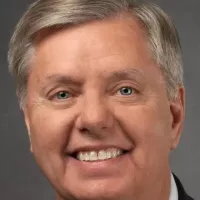
Lindsey Graham is an American politician and attorney He has...
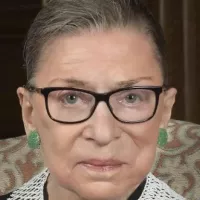
Ruth Bader Ginsburg was an American lawyer and Supreme Court...
Trending

10 minutes ago Warriors face play-in, Curry's injury raises concerns, Kerr lowers expectations, Moody's role?

10 minutes ago Stephen A. Smith criticizes Draymond Green's comments on Nico Harrison as unfair.

11 minutes ago Kris Dunn Recovered From Injury, Briefly Exited Game After Elbow Contact

11 minutes ago Al Horford's Role Shifts: Back to Starting Lineup, Then Bench, Mindset Revealed.
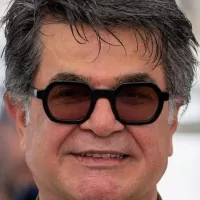
1 hour ago Jafar Panahi faces restrictions, continues filmmaking despite adversity and imprisonment in Iran.
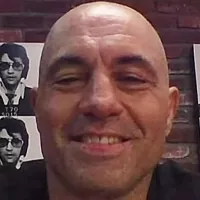
1 hour ago Joe Rogan Interviews RFK Jr. on Trump's ICE Raids and US Taxpayer Losses.
Popular

Jesse Jackson is an American civil rights activist politician and...

Hillary Diane Rodham Clinton is a prominent American politician lawyer...

Jim Carrey is a Canadian-American actor and comedian celebrated for...

XXXTentacion born Jahseh Dwayne Ricardo Onfroy was a controversial yet...

Kashyap Pramod Patel is an American lawyer who became the...

Michael Joseph Jackson the King of Pop was a highly...
